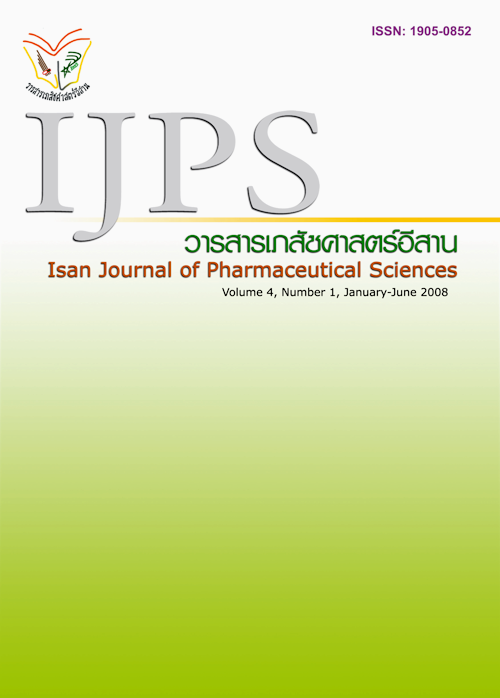Adherence to Antiretroviral Therapy in HIV-Infected Adults
Main Article Content
Abstract
Acquired immunodeficiency syndrome (AIDS) is an infectious disease caused by human immunodeficiency virus (HIV). The immunity of HIV-infected patients was impaired so that they could be infected by opportunistic microorganism and lead to be fatal. Patient must comply with antiretroviral therapy (ART) and promise to adhere to the medication higher than 95% in to order achieve effective response, prevent opportunistic infection and decrease dissipated drug resistant virus to the others. The aims of this study were to assess the adherence to ART and explore the factors affecting and adherence to ARV of HIV-infected adults at SriChiangMai Hospital, Nongkai. Study was performed in 21 patients who received ART during April to June 2007. All subjects took regimen I according to National Access to Antiretroviral Programs for People Who Living with HIV and AIDs (NAPHA). Adherences to ART were assessed using visual analog scale, pill counts and medication log book. Data from visual analog scale showed that 81.6% and 61.9% of patient adhered to ART followed NAPHA criteria during 7 days and 1 month respectively, before hospital revisit. Assessment of adherence to ART by pill count and log book indicated that over 90% of patients were follow NAPHA criteria. Factors affecting on adherence were age, marriage status, occupation, communication skill of health care professional, clarify data, sufficient drug supply, numbers of drug item and ease of oral administration.
Article Details
In the case that some parts are used by others The author must Confirm that obtaining permission to use some of the original authors. And must attach evidence That the permission has been included
References
-


